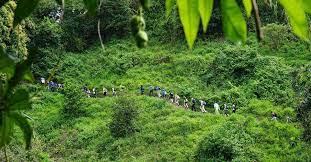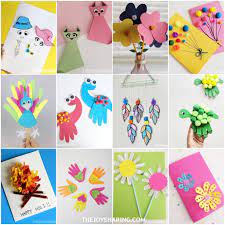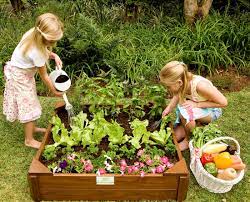Đừng bỏ lỡ những tính năng hấp dẫn của Baitap365.com
Unit 10: Ecotourism
1. Listen to these sentences. Pay attention to the intonation and repeat. 2. Work in pairs and role-play this conversation. Pay attention to the intonation. Then listen and check. 1. Below is what ecotourists do. Match each sentence on the left with its explanation on the right. 2. Complete these sentences with the highlighted words in 1. 1. Decide whether these statements can be real (R) or not (N). 2. Put the verbs in brackets in the correct forms.
Pronunciation - 1
Pronunciation: Intonation
(Phát âm: Ngữ điệu)
1. Listen to these sentences. Pay attention to the intonation and repeat.
(Hãy nghe những câu sau. Chú ý đến ngữ điệu và nhắc lại các câu đó.)
1. I’ll also try to bring snacks with less packaging.
(Em cũng sẽ cố gắng mang theo đồ ăn vặt với ít bao bì hơn.)
2. What’s an eco-friendly fieldtrip?
(Chuyến đi thực địa thân thiện với môi trường là gì ạ?)
3. Can we bring snacks?
(Chúng em có thể mang theo đồ ăn vặt không ạ?)
Pronunciation - 2
2. Work in pairs and role-play this conversation. Pay attention to the intonation. Then listen and check.
(Làm việc theo cặp và đóng vai thực hiện cuộc trò chuyện sau. Chú ý đến ngữ điệu. Sau đó lắng nghe và kiểm tra.)
Mum: Have you packed for the trip tomorrow?
Mai: Yes, I have.
Mum: Why are you taking so little food?
Mai: Because I don’t want to leave litter behind. It’s not good for the environment.
Mum: That’s a good idea.
Vocabulary - 1
Vocabulary: Ecotourism
(Từ vựng: Du lịch sinh thái)
1. Below is what ecotourists do. Match each sentence on the left with its explanation on the right.
(Dưới đây là những gì các nhà du lịch sinh thái làm. Ghép mỗi câu ở cột bên trái với phần giải thích của nó ở cột bên phải.)
|
1. I am responsible for protecting the environment. |
a. I know that when I travel, I may damage the environment. |
|
2. I am aware of the damage I may cause to the environment. |
b. I understand it is my duty to protect the environment. |
|
3. I help people learn about the environmental impact of tourism. |
c. I buy handmade things to help local artists and craftsmen or craftswomen earn some money and introduce their culture to more people. |
|
4. I help local businesses make a profit. |
d. I help local people earn some money by suing local services and buying local products. |
|
5. I buy traditional arts and crafts to help local culture and businesses. |
e. I tell people about the positive and negative effects of tourism on the environment. |
Vocabulary - 2
2. Complete these sentences with the highlighted words in 1.
(Hoàn thành các câu sử dụng các từ được làm nổi bật ở bài 1.)
1. We can help local artists make a ________ by buying handmade arts and _________.
2. Many tourists are not ________ of the ________ of their actions on the local community.
3. Both local people and tourists should be ________ for protecting the environment.
Grammar - 1
Grammar: Conditional sentences Type 1 and Type 2
(Ngữ pháp: Câu điều kiện loại 1 và loại 2)
1. Decide whether these statements can be real (R) or not (N).
(Quyết định xem các câu sau có thể là thực tế (R) hay không (N).)
|
R |
N |
|
|
1. If I were a bird, I would fly. |
||
|
2. If we work hard, we will get good marks. |
||
|
3. If my parents were 10 years younger, they would travel around the world. |
||
|
4. If it rains tomorrow, we will stay at home. |
Grammar - 2
2. Put the verbs in brackets in the correct forms.
(Hoàn thành các câu sau bằng cách sử dụng nguyên mẫu có to hoặc nguyên mẫu của các động từ trong ngoặc.)
1. If tourists buy local products, more of their money (stay) ______ in the community.
2. If we lived in the countryside, we (grow) ______ our own vegetables.
3. If my grandmother (be) ______ still alive, she (be) ______ a hundred today.
4. If people (give) ______ up flying, they (reduce) ______ their carbon footfrint.
Từ vựng
1.
(v): soạn đồ, đóng gói
Have you packed for the trip tomorrow? Yes, I have.
(Bạn đã chuẩn bị cho chuyến đi vào ngày mai chưa? Vâng tôi có.)
2.
be not good for something /biː nɒt gʊd fɔː ˈsʌmθɪŋ/ 

(v.phr): không tốt cho cái gì
Littering is not good for the environment.
(Xả rác không tốt cho môi trường.)
3.
(n): du lịch sinh thái
Ecotourism is about more than simply visiting natural attractions or natural places; it’s about doing so in a responsible and sustainable manner.
(Du lịch sinh thái không chỉ đơn giản là tham quan các thắng cảnh tự nhiên hoặc các địa điểm tự nhiên; đó là làm như vậy một cách có trách nhiệm và bền vững.)

4.
be responsible for /biː rɪsˈpɒnsəbl fɔː/ 

(v.phr): có trách nhiệm
I am responsible for protecting the environment.
(Tôi có trách nhiệm bảo vệ môi trường.)
5.
(v): gây hại
Pesticides may cause harm to the environment.
(Thuốc trừ sâu có thể gây hại cho môi trường.)
6.
(n): hàng thủ công
I buy traditional arts and crafts to help local culture and businesses.
(Tôi mua tác phẩm nghệ thuật và hàng thủ công truyền thống để giúp đỡ văn hóa địa phương và các doanh nghiệp.)

7.
earn some money /ɜːn sʌm ˈmʌni/ 

(v.phr): kiếm một số tiền
I buy handmade things to help local artists and craftsmen or crafts women earn some money and introduce their culture to more people.
(Tôi mua đồ thủ công để giúp các nghệ nhân và thợ thủ công địa phương hoặc phụ nữ làm nghề thủ công kiếm một số tiền và giới thiệu văn hóa của họ với nhiều người hơn.)

8.
(n): nhiệm vụ
I understand it is my duty to protect the environment.
(Tôi hiểu nhiệm vụ của tôi là bảo vệ môi trường.)
9.
(n.phr): điểm cao
If we work hard, we will get good marks.
(Nếu chúng ta học tập chăm chỉ, chúng ta sẽ đạt được điểm cao.)

10.
(adj): còn sống
If my grandmother is still alive, she will be a hundred today.
(Nếu bà tôi còn sống thì hôm nay bà sẽ trăm tuổi.)
11.
(phr.v): từ bỏ
If people give up flying, they will reduce their carbon footprint.
(Nếu mọi người từ bỏ việc bay, họ sẽ giảm được lượng khí thải carbon của họ.)
12.
grow vegetables /grəʊ ˈvɛʤtəb(ə)lz / 

(v.phr): trồng rau
If we lived in the countryside, we would grow our own vegetables.
(Nếu chúng tôi sống ở nông thôn, chúng tôi sẽ tự trồng rau.))

13.
Mẹo tìm đáp án nhanh
Search Google: "từ khóa + baitap365" Ví dụ: "Bài 5 trang 13 SGK Vật lí 12 baitap365